6 Best Books to Buy to Start Investing
Those looking to build their wealth should consider these best books on investing – good for seasoned investors and rookies alike.


Profit and prosper with the best of Kiplinger's advice on investing, taxes, retirement, personal finance and much more. Delivered daily. Enter your email in the box and click Sign Me Up.
You are now subscribed
Your newsletter sign-up was successful
Want to add more newsletters?

Delivered daily
Kiplinger Today
Profit and prosper with the best of Kiplinger's advice on investing, taxes, retirement, personal finance and much more delivered daily. Smart money moves start here.

Sent five days a week
Kiplinger A Step Ahead
Get practical help to make better financial decisions in your everyday life, from spending to savings on top deals.

Delivered daily
Kiplinger Closing Bell
Get today's biggest financial and investing headlines delivered to your inbox every day the U.S. stock market is open.

Sent twice a week
Kiplinger Adviser Intel
Financial pros across the country share best practices and fresh tactics to preserve and grow your wealth.

Delivered weekly
Kiplinger Tax Tips
Trim your federal and state tax bills with practical tax-planning and tax-cutting strategies.

Sent twice a week
Kiplinger Retirement Tips
Your twice-a-week guide to planning and enjoying a financially secure and richly rewarding retirement

Sent bimonthly.
Kiplinger Adviser Angle
Insights for advisers, wealth managers and other financial professionals.

Sent twice a week
Kiplinger Investing Weekly
Your twice-a-week roundup of promising stocks, funds, companies and industries you should consider, ones you should avoid, and why.

Sent weekly for six weeks
Kiplinger Invest for Retirement
Your step-by-step six-part series on how to invest for retirement, from devising a successful strategy to exactly which investments to choose.
The best books on investing break down one of the biggest barriers for folks wanting to build wealth: knowledge, or the lack thereof.
Most people might think that money is the largest hurdle for those wanting to start investing in the stock market. But with funds and apps that let you get started for as little as $1, you can invest with your pocket change.
Instead, what is arguably the greatest obstacle facing both beginning and seasoned investors alike is not knowing what to do.
Unfortunately, investing is not part of most educational curricula, so it's up to investors to create their own course, so to speak. The good news is that it's never been easier to do so thanks to the plethora of engaging books on investing available.
The bad news is that the abundance of choices can be a little overwhelming. This article will help you narrow it down.
Here, we look at six of the best books for investors, from quick reads you can knock out on your morning commute, to hefty tomes that leave nothing uncovered. And if you want to buy any of these books on investing for yourself or for someone on your holiday shopping list who's just getting started with their investing journey, we've included links to purchase pages.
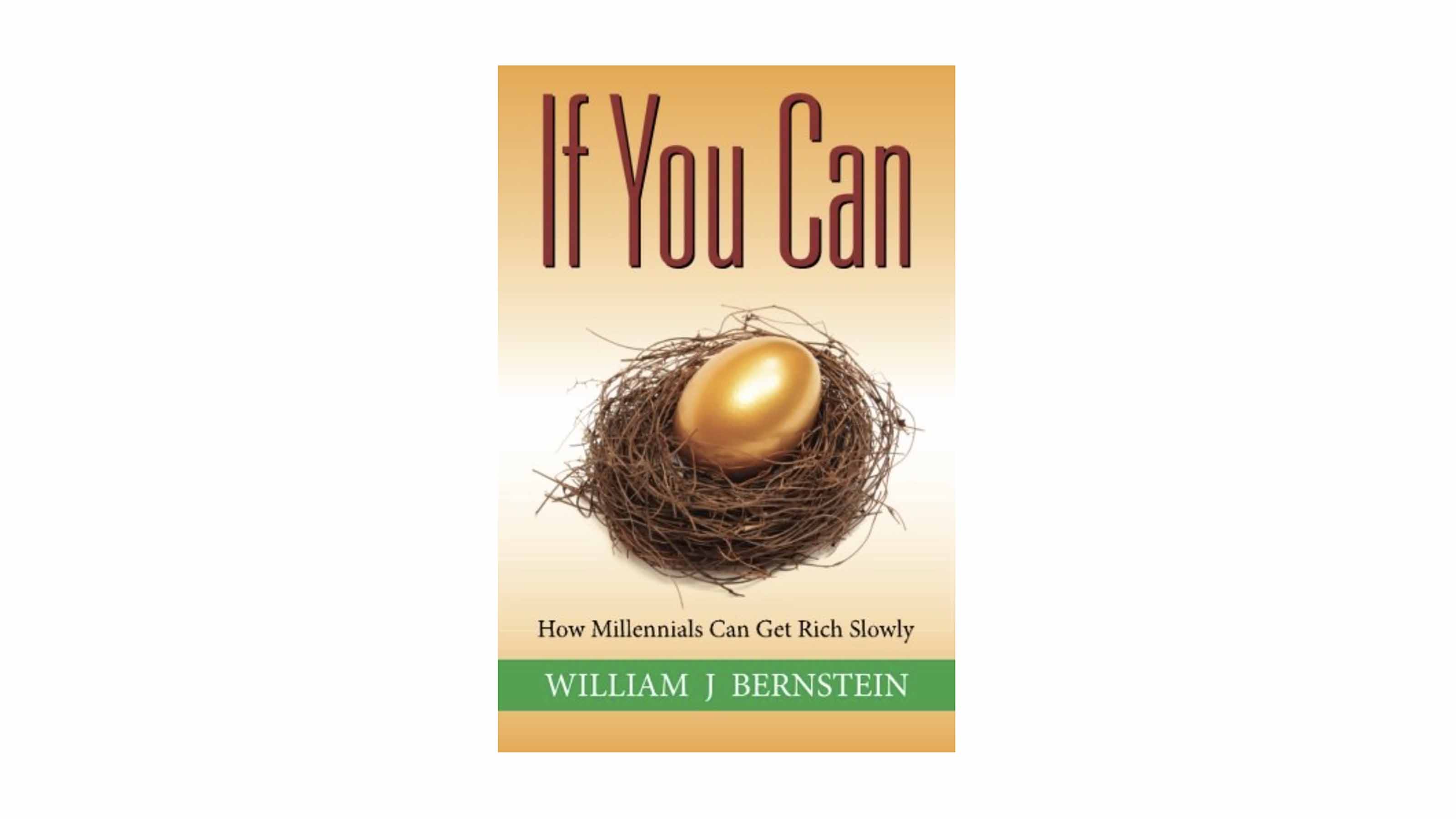
If You Can: How Millennials Can Get Rich Slowly
Author: William J. Bernstein
Purchase: Amazon.com / Barnes & Noble
Starting with the easiest – or certainly the shortest – read, William Bernstein's primer is one of the best books on investing for those looking to start their journey toward building wealth. At less than 50 pages, you could finish it over breakfast and have your first trade placed by lunch.
Bernstein proposes a strategy that's so straightforward a seven-year-old could do it. The whole process, Bernstein explains, takes only 15 minutes per year and has been shown to outperform 90% of financial professionals over the long run.
Best of all: you can get this book for free. Bernstein's website, Efficient Frontier, allows visitors to download If You Can in Kindle and Adobe Acrobat formats at no cost. (But at about six bucks, a paperback version won't break the bank and lets you support the author in the process.)
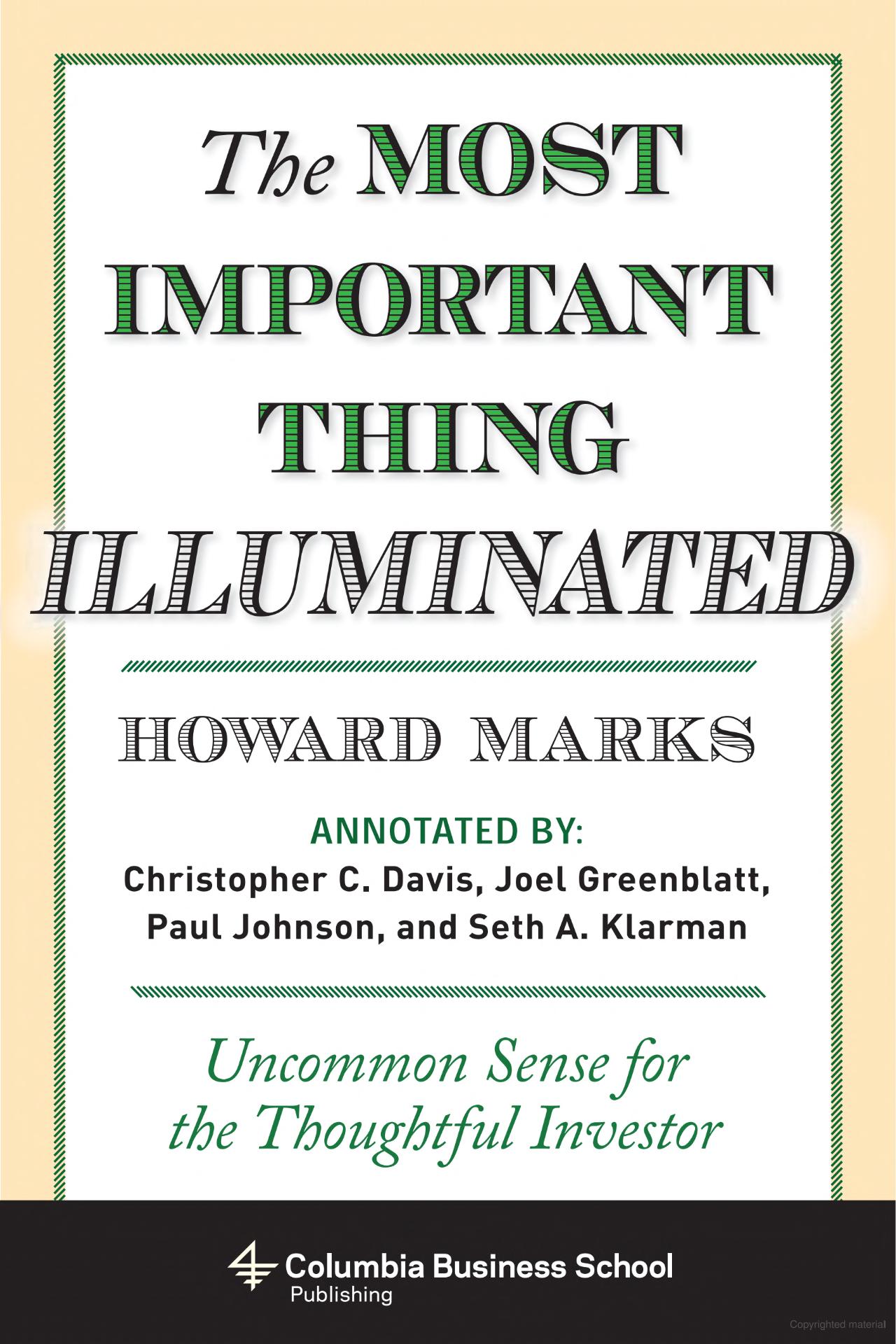
The Most Important Thing Illuminated: Uncommon Sense for the Thoughtful Investor
Author: Howard Marks
Purchase: Amazon.com / Barnes & Noble
No matter what type of beginning investor you are – "whether fresh out of business school or in the middle of your career looking to invest your retirement savings" – Ben Sayer, alternative investments group head at MAI Capital Management, recommends reading The Most Important Thing Illuminated by chairman and cofounder of Oaktree Capital Management, Howard Marks.
The book distills a career's worth of Marks' wisdom and client memos into less than 250 pages. In other words, it illuminates the important stuff. The latest edition also includes insights from other famed investors and a forward by the "guru to Wall Street's gurus," Bruce C. N. Greenwald.
Marks gives beginning investors what they need without going "too deep into the weeds on any given topic to exclude anyone without a finance background," Sayer says. "This book won't give you succinct, actionable insight to immediately implement in your portfolio, but hopefully it will arm you with a timeless decision-making framework to use whenever you need to make an investment decision."
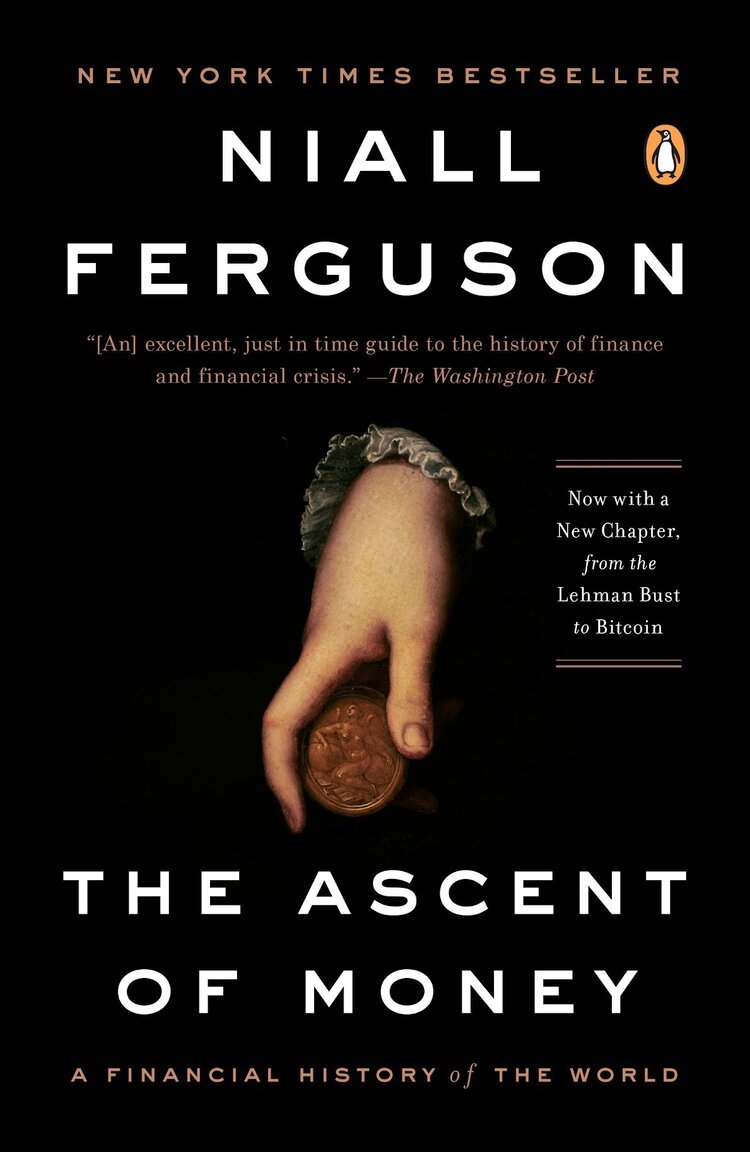
The Ascent of Money: A Financial History of the World
Author: Niall Ferguson
Purchase: Amazon.com / Barnes & Noble
Perspective is key when it comes to investing. It's all too easy for market turbulence to shake your confidence and make you question if doomsday has come at last. But in reality, whatever is happening today is likely no worse than what has come in the past. If investors have survived harsher downturns before and come out ahead in the long run, you probably can too.
Learning a little history can go a long way toward helping put the present into perspective, and this is just what you get from Niall Ferguson's book.
It provides readers with a solid base through a "historical perspective of market bubbles and the risks of focusing too much on short-term trends," says Phillip Hamman, president and CEO of Linscomb Wealth.
The most recent edition takes you from the Italian Renaissance up to the 2008 Financial Crisis and even bitcoin.
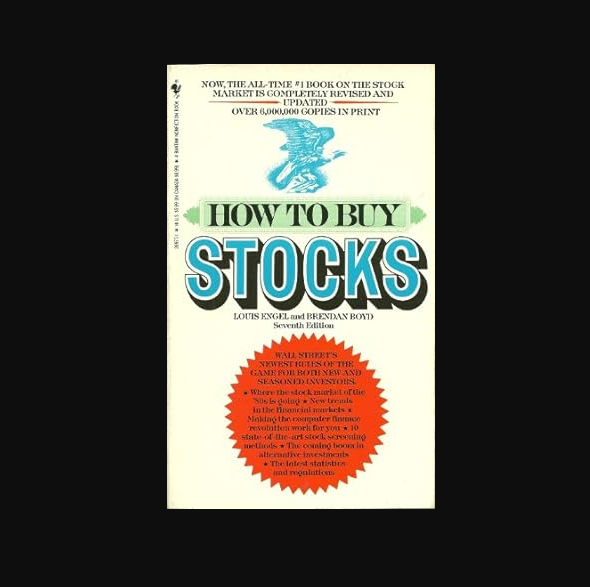
How to Buy Stocks
Author: Louis C. Engel
Purchase: Amazon.com / Barnes & Noble
Technology has changed the way we invest, from the advent of robo advisers and digital wealth platforms to fractional share investing, but the fundamentals of what a stock is and how you should invest in the market remain the same.
How to Buy Stocks by Louis Engel is "a timeless classic on investing" that "incorporates everything an investor would need to know to get started," says Andrew Crowell, a financial adviser and vice chairman of wealth management at D.A. Davidson.
In one of the best books on investing available, Engel creates a fictional company called Acme through which he illustrates the process of becoming a publicly traded company.
"Taking the reader step-by-step from business concept to capital raising, Engel expertly but straightforwardly illustrates how capitalism and the financial markets work," Crowell says. "It's an excellent primer for individuals who want to begin investing or simply want to have a better understanding of how the system works."
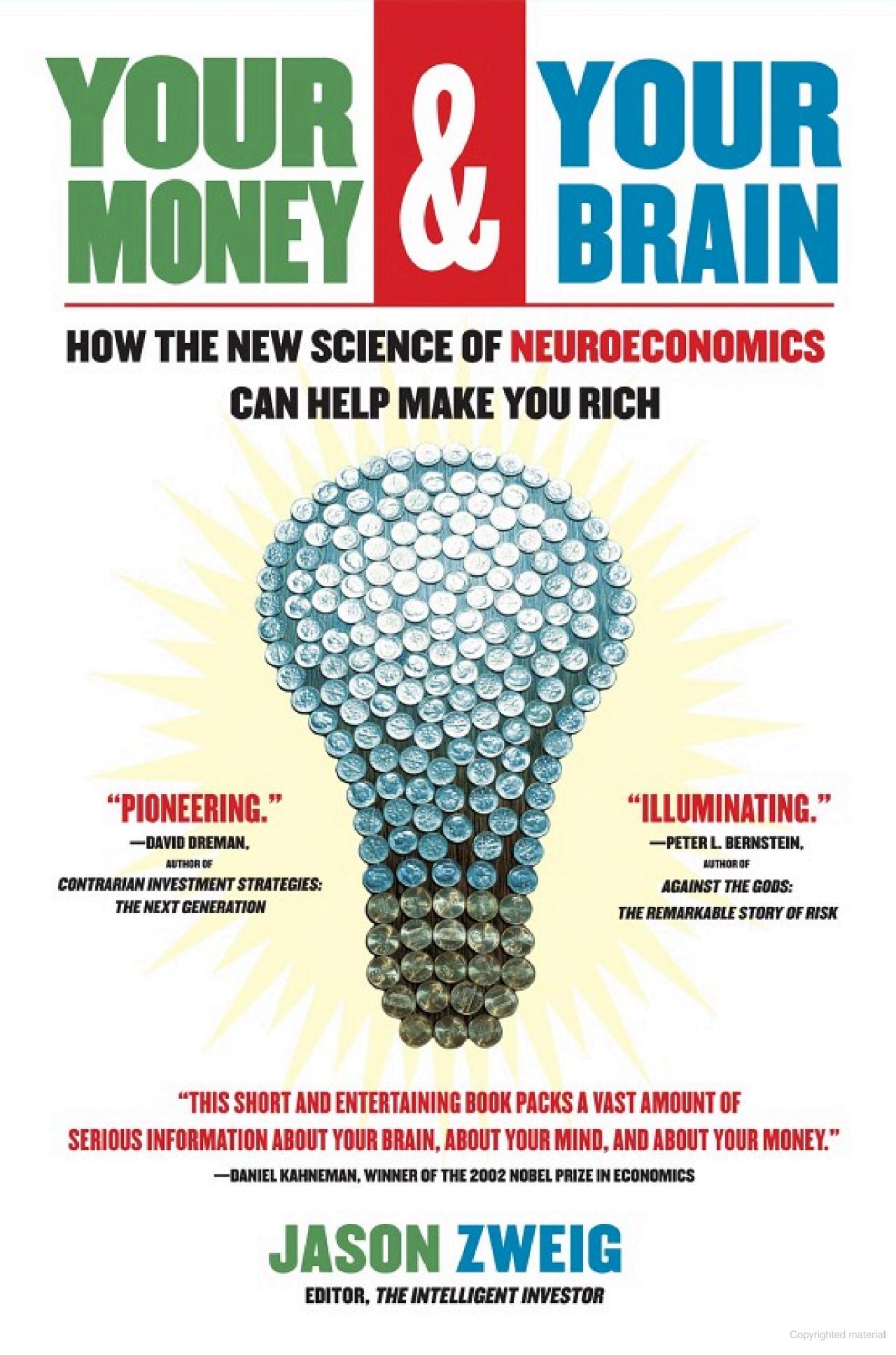
Your Money & Your Brain: How the New Science of Neuroeconomics Can Help Make You Rich
Author: Jason Zweig
Purchase: Amazon.com / Barnes & Noble
"The difference between success and failure with investing oftentimes boils down to human psychology and behaviors," Hamman says. To help you develop the psychology and behaviors for long-term investing success, he recommends reading Jason Zweig's Your Money & Your Brain: How the New Science of Neuroeconomics Can Help Make You Rich.
In the book, Zweig draws on scientific research – including experiments on his own brain — to help you make better financial decisions and avoid bad ones that even the smartest people fall prey to.
And don't worry about it being too theoretical: Zweig expertly combines science and practicality to ensure you walk away with actionable steps to be a better investor today.
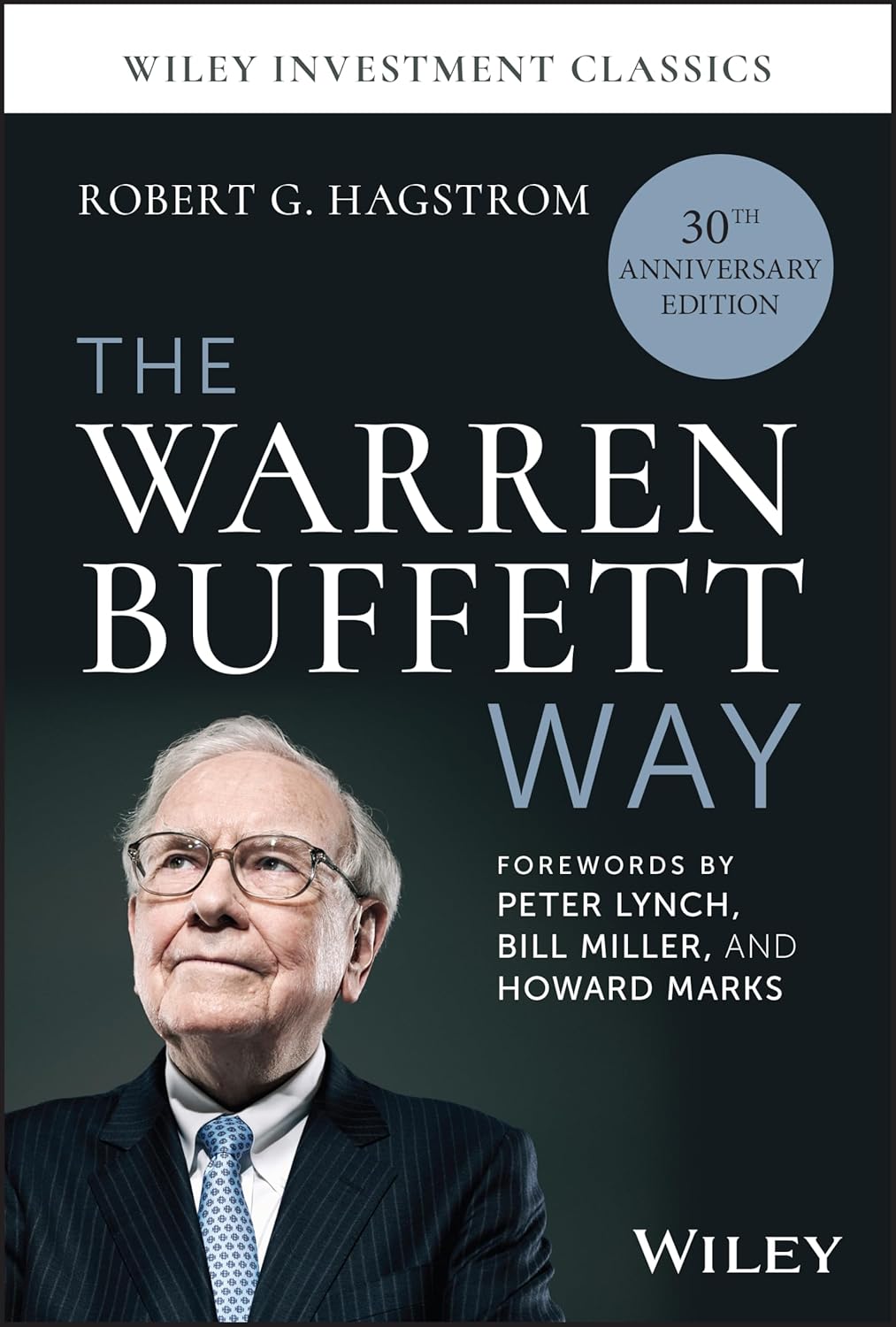
The Warren Buffett Way
Author: Robert G. Hagstrom
Purchase: Amazon.com / Barnes & Noble
You know you're entering classic investing books territory when you find one that's in its 30th-anniversary edition. The Warren Buffett Way has earned its reputation as a Wiley Investment Classic after three decades of educating investors on the strategies that helped the famed Oracle of Omaha earn his own reputation as an investing guru. For this reason, Hamman recommends the book to both beginning personal and professional investors.
In the book, Hagstrom examines the twelve tenets of Buffett's strategy and each of the major investments that have helped build his success. Along the way, you'll gain the insights you need to apply those same strategies in your own portfolio while avoiding some of the most common pitfalls.
The latest edition includes even more wisdom from Buffett's longtime business partner and former vice chairman of Berkshire Hathaway, Charlie Munger. You'll also get a history of the Berkshire Hathaway common stock portfolios dating back to 1977.
Related content
Profit and prosper with the best of Kiplinger's advice on investing, taxes, retirement, personal finance and much more. Delivered daily. Enter your email in the box and click Sign Me Up.

Coryanne Hicks is an investing and personal finance journalist specializing in women and millennial investors. Previously, she was a fully licensed financial professional at Fidelity Investments where she helped clients make more informed financial decisions every day. She has ghostwritten financial guidebooks for industry professionals and even a personal memoir. She is passionate about improving financial literacy and believes a little education can go a long way. You can connect with her on Twitter, Instagram or her website, CoryanneHicks.com.
-
 Dow Adds 1,206 Points to Top 50,000: Stock Market Today
Dow Adds 1,206 Points to Top 50,000: Stock Market TodayThe S&P 500 and Nasdaq also had strong finishes to a volatile week, with beaten-down tech stocks outperforming.
-
 Ask the Tax Editor: Federal Income Tax Deductions
Ask the Tax Editor: Federal Income Tax DeductionsAsk the Editor In this week's Ask the Editor Q&A, Joy Taylor answers questions on federal income tax deductions
-
 States With No-Fault Car Insurance Laws (and How No-Fault Car Insurance Works)
States With No-Fault Car Insurance Laws (and How No-Fault Car Insurance Works)A breakdown of the confusing rules around no-fault car insurance in every state where it exists.
-
 Dow Adds 1,206 Points to Top 50,000: Stock Market Today
Dow Adds 1,206 Points to Top 50,000: Stock Market TodayThe S&P 500 and Nasdaq also had strong finishes to a volatile week, with beaten-down tech stocks outperforming.
-
 The Best Precious Metals ETFs to Buy in 2026
The Best Precious Metals ETFs to Buy in 2026Precious metals ETFs provide a hedge against monetary debasement and exposure to industrial-related tailwinds from emerging markets.
-
 For the 2% Club, the Guardrails Approach and the 4% Rule Do Not Work: Here's What Works Instead
For the 2% Club, the Guardrails Approach and the 4% Rule Do Not Work: Here's What Works InsteadFor retirees with a pension, traditional withdrawal rules could be too restrictive. You need a tailored income plan that is much more flexible and realistic.
-
 Retiring Next Year? Now Is the Time to Start Designing What Your Retirement Will Look Like
Retiring Next Year? Now Is the Time to Start Designing What Your Retirement Will Look LikeThis is when you should be shifting your focus from growing your portfolio to designing an income and tax strategy that aligns your resources with your purpose.
-
 I'm a Financial Planner: This Layered Approach for Your Retirement Money Can Help Lower Your Stress
I'm a Financial Planner: This Layered Approach for Your Retirement Money Can Help Lower Your StressTo be confident about retirement, consider building a safety net by dividing assets into distinct layers and establishing a regular review process. Here's how.
-
 Stocks Sink With Alphabet, Bitcoin: Stock Market Today
Stocks Sink With Alphabet, Bitcoin: Stock Market TodayA dismal round of jobs data did little to lift sentiment on Thursday.
-
 The 4 Estate Planning Documents Every High-Net-Worth Family Needs (Not Just a Will)
The 4 Estate Planning Documents Every High-Net-Worth Family Needs (Not Just a Will)The key to successful estate planning for HNW families isn't just drafting these four documents, but ensuring they're current and immediately accessible.
-
 Love and Legacy: What Couples Rarely Talk About (But Should)
Love and Legacy: What Couples Rarely Talk About (But Should)Couples who talk openly about finances, including estate planning, are more likely to head into retirement joyfully. How can you get the conversation going?
